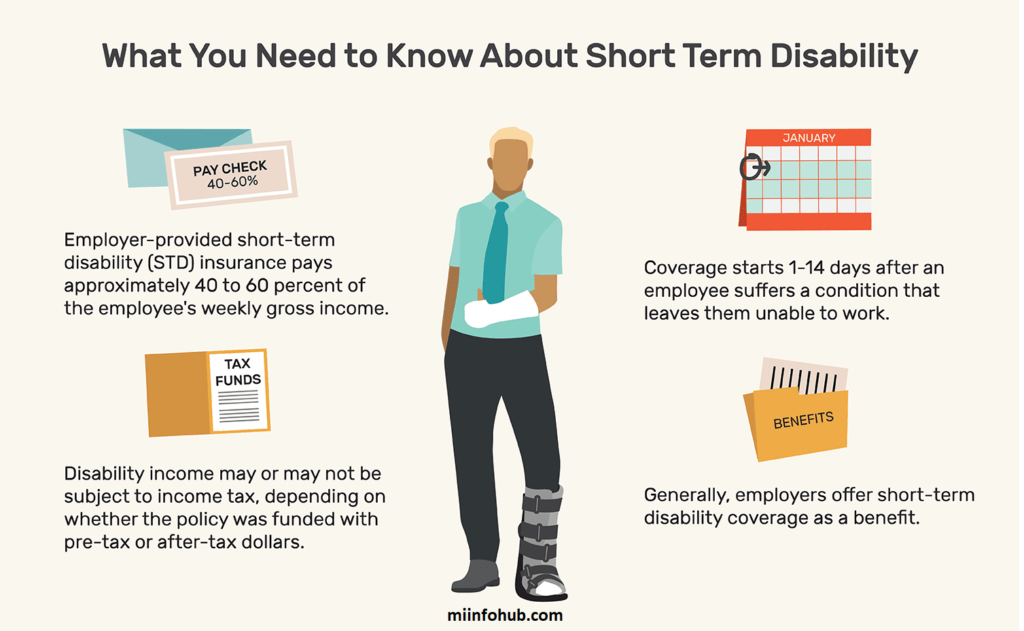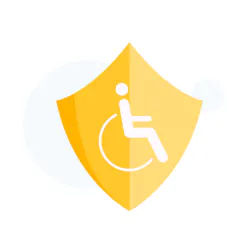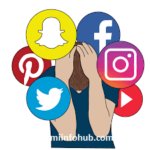Understanding Short-Term Disability For Mental Health Benefits
Short-Term Disability For Mental Health benefits provide financial assistance to individuals who are temporarily unable to work due to a medical condition or injury. These benefits typically cover a portion of an employee’s salary for a specified period, often ranging from a few weeks to several months. To qualify, individuals usually need to provide medical documentation of their condition. Short-term disability plans can vary by employer, with some offering full pay while others may cover a percentage of the salary. Understanding the terms, application process, and eligibility criteria is crucial for maximizing these benefits during challenging times.

Eligibility Criteria For Short-Term Disability For Mental Health
Eligibility criteria for short-term disability benefits generally include the following key factors:
- Employment Status: Applicants must be current employees, often required to have worked for the employer for a specific duration, such as three to six months.
- Medical Condition: The condition must be documented by a healthcare professional, and it should prevent the employee from performing their job duties.
- Waiting Period: Many policies have a waiting period, which is the time an employee must be disabled before benefits begin, typically ranging from one week to 30 days.
- Coverage Type: Eligibility may depend on whether the employer provides short-term disability insurance as part of their benefits package.
- Policy Terms: Each short-term disability policy may have specific requirements, such as the types of disabilities covered and any exclusions.
- Documentation: Applicants usually need to submit medical records and a completed claim form to support their application.
Common Mental Health Conditions That Qualify
Common mental health conditions that may qualify for short-term disability benefits include:
- Depression: This includes major depressive disorder, persistent depressive disorder, and other forms of depression that significantly impair daily functioning.
- Anxiety Disorders: Conditions such as generalized anxiety disorder, panic disorder, and social anxiety disorder can qualify if they severely limit one’s ability to work.
- Bipolar Disorder: This mood disorder, characterized by extreme mood swings, can lead to periods of incapacitating depression or mania.
- Post-Traumatic Stress Disorder (PTSD): Individuals who experience PTSD may have debilitating symptoms that affect their ability to perform work duties.
- Obsessive-Compulsive Disorder (OCD): Severe OCD can interfere with daily activities and work performance.
- Schizophrenia: This serious mental disorder affects how a person thinks, feels, and behaves, often requiring treatment that can impede work capability.
- Eating Disorders: Conditions like anorexia nervosa or bulimia nervosa can be severe enough to prevent individuals from functioning in a work environment.
- Substance Use Disorders: Addictions that impact one’s ability to maintain employment may also qualify, particularly if the individual is undergoing treatment.
Review Your Employer’s Policy
Reviewing your employer’s policy on short-term disability is essential. Start by locating the employee handbook or benefits guide. Pay attention to the specific criteria for qualifying for benefits. Note the application process and any required forms. Understanding waiting periods and coverage limits is crucial as well. Familiarize yourself with any documentation your employer may require. If you have questions, consider reaching out to your HR department. Knowing your employer’s policy will help you navigate the process effectively. For exploring the role of a mental health advocate please click here.

Consult A Mental Health Professional
Consulting a mental health professional is a vital step in securing short-term disability benefits. They can assess your condition and provide a diagnosis that supports your claim. During the consultation, discuss your symptoms and how they impact your daily life and work. The professional may recommend treatment options and document their findings in a letter. This documentation is crucial for your application. A mental health professional’s support not only strengthens your case but also helps you on your path to recovery.
Gather Required Documentation
Gathering required documentation is crucial for your short-term disability claim. Start by collecting medical records from your healthcare provider. This includes diagnoses, treatment plans, and progress notes. You may also need a letter from your mental health professional detailing your condition. Additionally, gather any relevant employment records, such as your job description and absence history. Having all the necessary documents organized will streamline the application process and improve your chances of approval.
Complete Your Application
To complete your short-term disability application, gather necessary information, including personal details and medical history. Fill out the application form accurately, ensuring all sections are completed. Double-check for errors or missing information, as this can delay your claim. Attach required documentation, such as your mental health professional’s letter. Submit your application on time to enhance your chances of approval.

Submit And Track Your Claim
After completing your application for short-term disability, submit it to your employer or insurance provider. Keep a copy of the application for your records. Once submitted, track the status of your claim regularly. You may receive updates via email or phone. If there are delays, follow up with the provider to ensure your claim is being processed. Staying proactive can help you address any issues promptly.
Understanding The Review Process
The review process for short-term disability claims includes key steps. After submitting your application, a claims adjuster evaluates your documentation and medical details. They may contact your healthcare provider for more information. The adjuster checks if your condition meets the eligibility criteria in your employer’s policy. You’ll be notified of their decision, which may take several weeks. If denied, you can appeal by submitting additional information. Understanding this process helps you navigate your claim effectively.
What To Do If Your Claim Is Denied
If your claim for short-term disability is denied, start by reviewing the denial letter to understand the reasons behind the decision. Gather any additional documentation that supports your case, such as medical records and treatment plans. Check your employer’s policy to ensure you know your rights and the requirements. Contact the claims adjuster for clarification on what additional information may be needed. Follow the appeal process outlined in the denial letter, submitting your appeal with new documentation. If challenges persist, consider consulting with a lawyer specializing in disability claims. Staying persistent and organized is crucial to successfully overturning a denial.
Frequently Asked Questions About Short-Term Disability For Mental Health
- What is short-term disability?
Short-term disability provides financial support to employees who are temporarily unable to work due to a medical condition or injury. This benefit typically covers a portion of your salary for a limited period. - How long does short-term disability last?
Coverage usually lasts between a few weeks to six months, depending on the policy and the specific situation. - What conditions qualify for short-term disability?
Common conditions include mental health issues, surgeries, injuries, and serious illnesses. Always check your employer’s policy for specific qualifying criteria. - How do I apply for short-term disability?
To apply, review your employer’s policy, gather necessary documentation, consult with a healthcare provider, and complete the application process. - Will I need documentation from a doctor?
Yes, a doctor’s statement or medical documentation is typically required to support your claim for short-term disability. - What if my claim is denied?
If your claim is denied, review the denial letter, gather additional documentation, and follow your employer’s appeal process. - Can I receive short-term disability for mental health conditions?
Yes, many policies cover mental health conditions, but eligibility may vary by insurer and employer. Documentation from a mental health professional is often required. - Is short-term disability the same as FMLA?
No, short-term disability provides financial benefits, while the Family and Medical Leave Act (FMLA) allows employees to take unpaid leave for medical reasons without losing their job. - How is the benefit amount calculated?
Benefit amounts are usually a percentage of your regular salary, typically ranging from 50% to 70%, depending on the policy. - Do I have to pay taxes on short-term disability benefits?
This depends on how the premiums were paid. If your employer paid for the policy, benefits may be taxable. If you paid the premiums, benefits are typically tax-free.

Additional Resources For Mental Health Support
- National Alliance on Mental Illness (NAMI)
NAMI offers education, support, and advocacy for individuals affected by mental health conditions. Their helpline provides information and resources. - Mental Health America (MHA)
MHA provides resources for mental health screening, advocacy, and support groups. They focus on mental health awareness and prevention. - Substance Abuse and Mental Health Services Administration (SAMHSA)
SAMHSA offers a national helpline and a treatment locator for individuals seeking support for mental health and substance use issues. - Crisis Text Line
This free, 24/7 text line connects individuals in crisis with trained counselors via text message. Text “HOME” to 741741. - Psychology Today Directory
Use this online directory to find therapists, psychologists, and counselors in your area. You can filter by issues, insurance, and more. - BetterHelp
BetterHelp is an online platform that connects individuals with licensed therapists for virtual therapy sessions, making mental health support accessible from home. - Therapy Apps
Apps like Headspace, Calm, and Woebot offer guided meditations, stress relief techniques, and emotional support through AI and mental health exercises. - Local Community Centers
Many community centers offer support groups, workshops, and mental health resources. Check local listings for available services in your area. - Employee Assistance Programs (EAPs)
If you’re employed, your company may offer EAPs that provide confidential support, counseling, and resources for mental health issues. - Support Groups
Look for local or online support groups for specific mental health conditions, where individuals can share experiences and coping strategies.
Conclusion: Taking The First Step Towards Recovery
Embarking on the journey of mental health recovery begins with taking that crucial first step. Acknowledging your struggles and seeking help is an act of courage and strength. Remember, recovery is not a linear process; it involves ups and downs, but each step forward counts. Utilize available resources, whether through professional support, community programs, or self-help strategies. Surround yourself with understanding people who can offer encouragement and empathy. As you take these steps, focus on building a supportive network, setting realistic goals, and celebrating small victories. Remember, recovery is possible, and you are not alone in this journey. Every effort you make brings you closer to a healthier, more fulfilling life.


